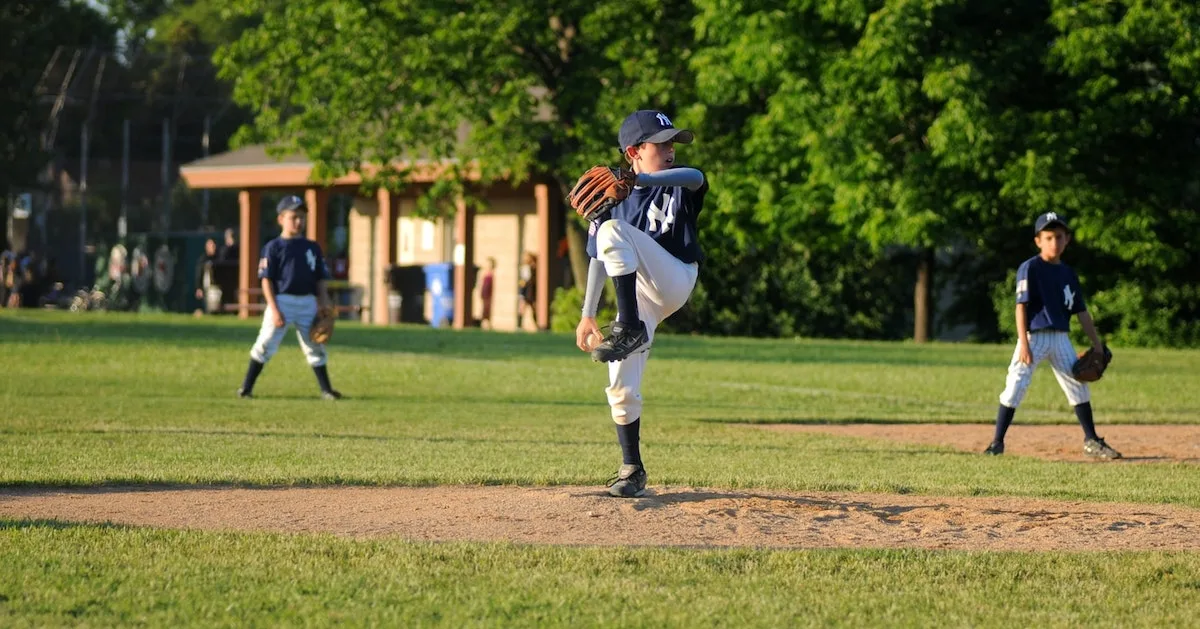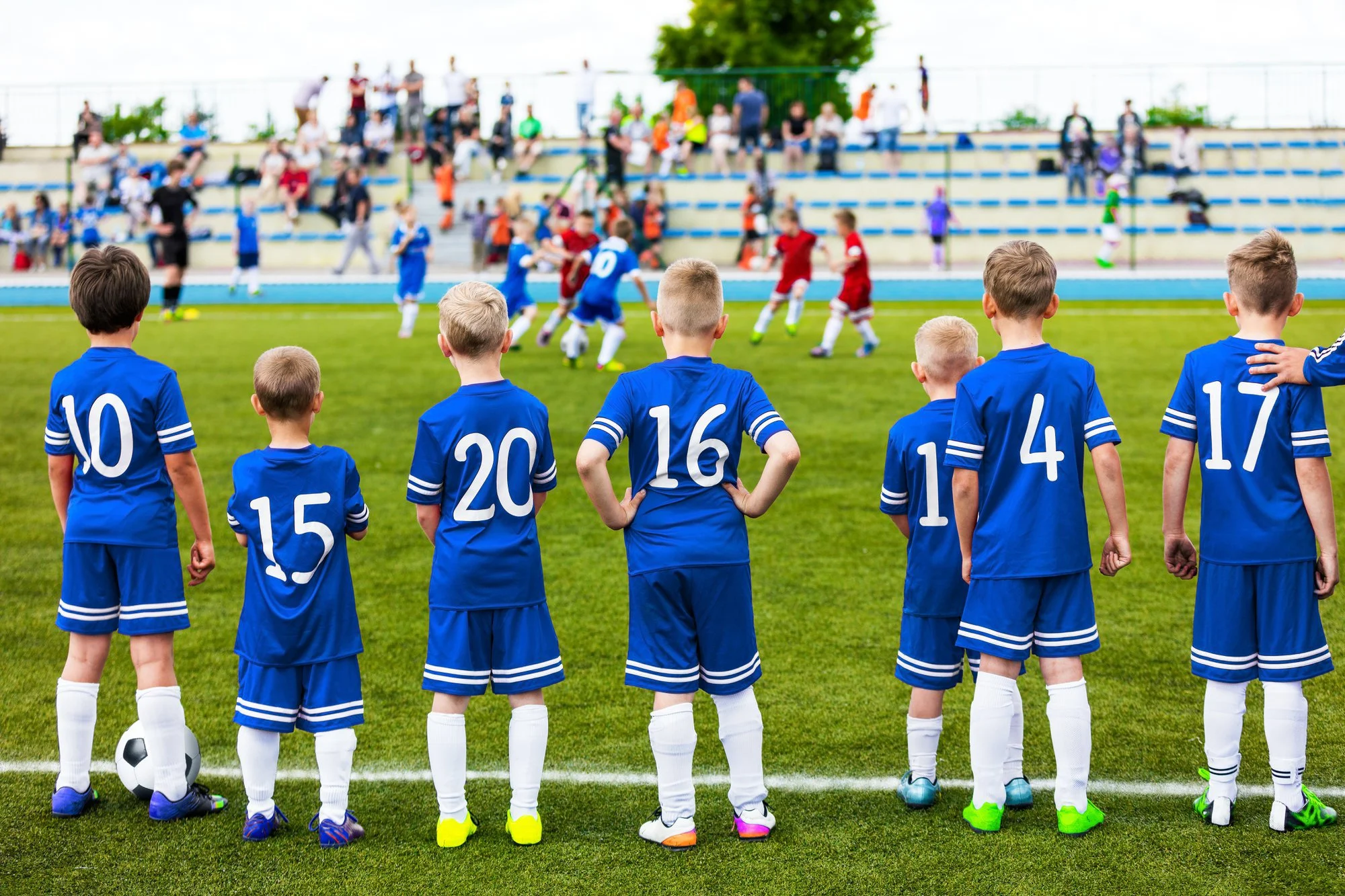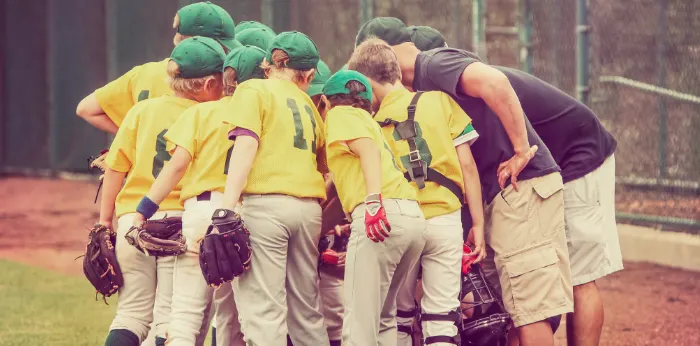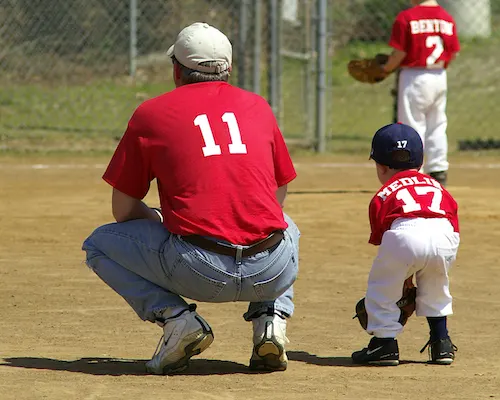
No one doubts that participating in sports helps young people stay physically healthy. But having a healthy mind is critical for success in athletic endeavors.
However you measure success—whether it's putting forth solid effort or competing at elite levels—every parent and coach should know the basic tenets of youth sports psychology.
Read on for four essential youth sports psychology strategies to know.
Why sports psychology is important for young athletes
Builds confidence
Building confidence is something every athlete should learn for themselves. They shouldn't rely solely on immediate results (like scoring the first goal) to gauge their self-confidence.

You can boost their confidence before a game or competition by letting them draw on their past successes. Using positive self-talk and visualization are two sports psychology tactics that are helpful.
Athletes can use positive self-talk to remind themselves of their abilities, and mental imagery can help them envision successful plays or points before the game.
Sports parents and coaches need to avoid burdening kids with expectations. As sports psychology expert Patrick Cohn explains, it makes kids feel pressured and can negatively impact their mental health.
Develops mental toughness
Another aspect of sports psychology is mental toughness. It can reflect an athlete's success, and factors like focus, determination, and perseverance affect it. It's becoming more common for coaches and trainers to incorporate mental game training into their practices.
An athlete's mental toughness allows them to deal with pressure, adversity, and challenges. Mental training helps young athletes keep a cool head in high-pressure situations or when they're not performing well, so they can make a comeback or learn from it.
Encourages empathy and kindness
Mental toughness isn’t about being mean, though. It’s about support and respect. Sports psychologist Mary D. Fry, PhD, from the University of Kansas, found that kids participating in a “high-caring” climate were more likely to stay committed to the sport.

Athletes in these environments also reported greater empathy for teammates, better emotional regulation, and more hope and happiness than those in low-caring climates. Mental coaching is just as important as skills training in youth sports.
Helps reach peak performance
Performance anxiety is an issue in youth sports that diminishes the joy of participating. If young athletes are constantly anxious about their performance, they may not enjoy the sport as much. Overcoming performance anxiety can thus increase their enjoyment and overall satisfaction with sports.
When athletes learn to manage performance anxiety, they can perform to the best of their ability. Anxiety interferes with focus, decision-making, and skill development. Learning to manage the “fear of failure” dread can help young athletes reach their peak performance.
4 youth sports psychology exercises
1. Promote intrinsic vs. extrinsic rewards
Many people question the value of the "everybody gets a trophy" mentality pervasive in youth activities. Some challenge the notion that everyone earns an award regardless of effort or contribution. But there's another drawback to providing overt reward: It's a form of external motivation.
What does that mean? External motivation is something overt or tangible. In the youth sports world, eternal motivations can include trophies, ribbons, and scholarships.
Although these external factors have value, they may not offer the same incentive to grow and perform as internal factors. Also, if young athletes feel too much pressure to achieve an external reward, they can start to experience anxiety and depression, keeping them further away from reaching their goals.

Instead, focus young athletes on intrinsic goals, such as learning how to work as a team, positive development, and character building are all types of internal motivators. Factors like these can inspire young athletes to work hard and achieve their personal best, even if they don't earn an external award.
Having fun, expressing creativity, and being autonomous are some of the most potent internal motivators. These motivators can keep young athletes participating in sports and help them stay on a course for success.
2. Set goals for young athletes
As a coach or parent, you should help young athletes envision their potential and define steps to reach that outcome. It's not always easy for young people to set realistic goals on their own.
Some may have lofty aspirations like going pro without understanding the skills and work to reach the pinnacle of sport competition. Others may not recognize their talents and what they can achieve.
When goal setting, remember the acronym "SMART." SMART goals are:
- Specific: A specific goal is clearly defined. For example, a gymnast may want to improve his performance and be more competitive next season. But that is a vague goal. A more specific goal is learning new floor exercise skills and competing with a more difficult routine.
- Measurable: A measurable goal has a number or metric associated with it. In many competitive sports, measurable goals can be easy to define. For example, a cross-country runner may aim to run a 5K one minute faster at the end of a season.
- Attainable: Attainable goals are reachable for the individual athlete. A high school baseball pitcher may dream of pitching a perfect game, but that's a formidable achievement for many. A more practical goal may be achieving more strikeouts.
- Realistic: A realistic goal is one that the athlete wants to achieve. Imagine a scenario where a coach wants a swimmer to start competing in the individual medley, but the athlete doesn't share this ambition. The coach's goal isn't realistic since it's not a motivator to the athlete. In this situation, a realistic goal may be for the athlete to improve times for a favorite event, such as the backstroke.
- Timely: A timely goal can be achieved in a reasonable amount of time. Although competing at a high school or college level may be an aspiration of some younger athletes, SMART goals will focus on things that can happen in the near term.
When coaching youth sports psychology, adults can help youth create individualized SMART goals and map progress towards them. Achieving small goals can help young athletes see how their work pays off and keep them striving for the next step.
3. Use positive communication
It's no surprise that positive communication can motivate people to do their best in any setting, including youth sports. As a coach or a parent, you should think about the words you use and your non-verbal communication. Also, observe how young athletes communicate with one another and work to cultivate a positive, encouraging atmosphere.
While it's easy to witness the power of words you speak, you should also think about your voice's tone, emotion, and volume. A kind word delivered sarcastically or shouted encouragement could feel unwelcome to the receiver.
In addition, consider any written communication to young athletes. Abusive, overly critical emails can do as much harm as disparaging verbal remarks.
Focus on communication with each athlete to improve the performance of your players and the team. Even Steve Kerr focuses on the little things!
Keep an eye on interactions between athletes. Aim to redirect any negative commentary by modeling positive communications. Also, make sure young athletes aren't coaching each other, but remind them to encourage and support fellow athletes.
You can practice youth sports psychology exercises that promote good communication skills along with the necessary physical training.
4. Emphasize the process, not the outcome
You or your young athletes may have big goals, like winning a championship or defeating a rival. While those ambitions may be motivating, your athletes can still gain value from sports even if they don't achieve those ultimate outcomes. It's helpful to remind young people to focus on growing as an athlete.
For example, let's say you coach a basketball team with its eyes on a regional championship. That end-of-season goal is attainable, but not without dedication, hard work, and skill-building. And you're likely to face fierce competition too.
Although you can envision championship as a potential outcome together, focus on the steps to get there. Your team may need to enhance its defense, while individual athletes may need to improve their free-throw percentages.
Those team and personal performance gains are part of the process that's critical to achieve the goal of winning the championship. You can use those specific improvements as a way to motivate your sports team to take the smaller steps needed to achieve a big victory.
This critical concept isn't just relevant to sport psychology in high school athletes. You can apply it to any age group, even collegiate and professional athletes.
When athletes focus on the process and not the outcome, they don't feel discouraged when things don't go their way. If the high school team doesn't make the championships, they can reflect on what they did well, how they've grown, and what they need to improve.
Putting youth sports psychology into practice
Participating in a sport can help a young person foster physical and mental skills. When parents and sports coaches are aware of fundamental sports psychology practice, they can encourage youth athletes to develop mental well being for sports and life.
As youth sports become more competitive, it's easy for young people to focus on external motivators and lose sight of the intrinsic value of participating in sports. Athletes can focus too heavily on far-away objectives, but adults can redirect them to more immediate goals. Positive communication and focusing on the process that guides athletes towards longer-term aims is critical.
No matter a young person's skill level or potential, using sports psychology can help them feel good about what they can achieve. Each youth sports participant can take the encouraging words and motivational concepts they learn from sports with them and create positive futures.